What's new in Egypt's draft constitution?
- Published
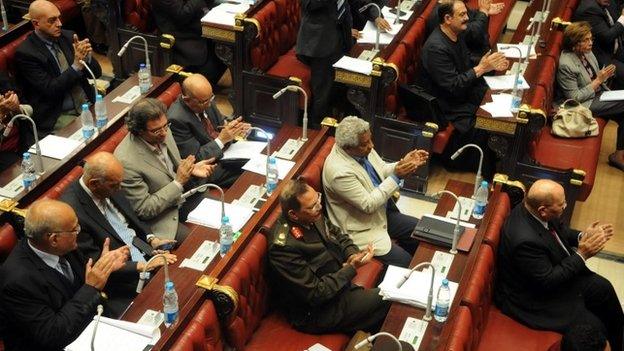
A draft Egyptian constitution has been agreed by a 50-member constituent assembly and presented for approval to the interim President, Adly Mansour.
A referendum on the new charter is expected to be held in January, paving the way for presidential and parliamentary elections. It would replace the controversial constitution approved by referendum in 2012, seven months before the military ousted President Mohammed Morsi.
Transition
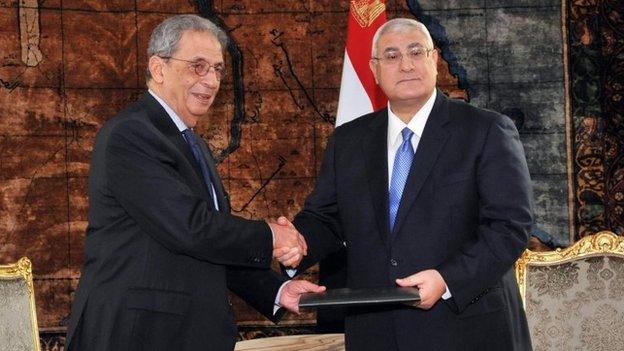
The chairman of the constituent assembly, Amr Moussa, presented the draft to Adly Mansour
Interim leader Adly Mansour will continue to have presidential powers until an elected successor is sworn in.
Mr Mansour will decide whether parliamentary or presidential elections should take place first. The original road-map set out by the military after the overthrow of Mr Morsi said parliamentary polls would precede a presidential vote. However, the draft states only that "procedures" for the "first election" must begin at least 30 days after the adoption of the constitution, and those for the "other election" within six months.

President
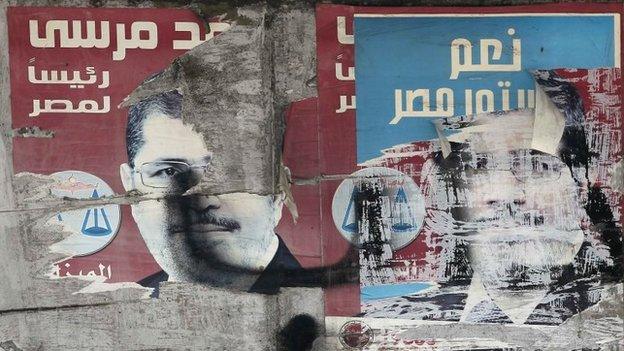
Mohammed Morsi was deposed by the military following mass opposition protests
The president may serve two four-year terms. Candidates must be at least 40 years old, Egyptian and born to Egyptian parents. The candidates, their parents and spouses may not have foreign nationality.
Parliament can hold a confidence vote in the president and, if a two-thirds majority approves, trigger a referendum on whether there should be early presidential elections. Parliament can also impeach the president with the approval of a two-thirds majority.

Government
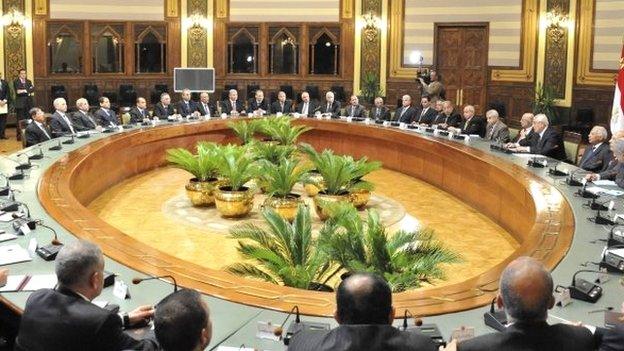
The referendum is the first stage in the "democratic transition" promised by the interim government
The draft's preamble says Egypt seeks to "build a democratic, modern country with a civilian government".
The president will appoint a prime minister, who must secure parliament's approval. If the choice is rejected, the president must accept the choice of the party or coalition that has the majority in parliament. If the proposed government does not win parliament's approval, parliament will be dissolved and new elections held. The president requires the approval of the majority in parliament to reshuffle or dismiss the government.

Parliament
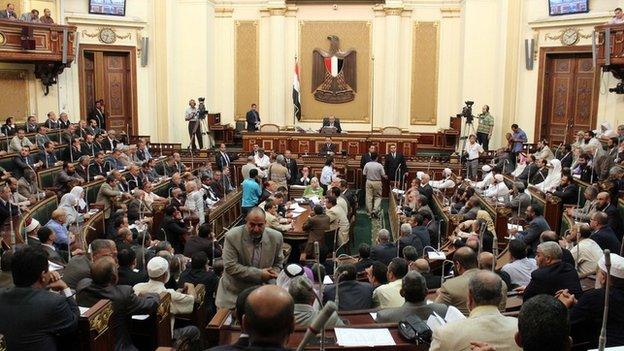
The House of Representatives was dissolved following a court decision in June 2012
The draft makes no mention of the upper house of parliament, the Shura Council, a consultative body that only gave its opinion on issues and revised draft laws. All legislative responsibility will therefore lie with the House of Representatives.
The interim president was left to decide what proportion of seats should be reserved for independents, with the remainder drawn from party lists.
The state should take measures to guarantee that women are "properly represented in legislative bodies". But workers and farmers will no longer be reserved half of the seats in the House of Representatives.

Military
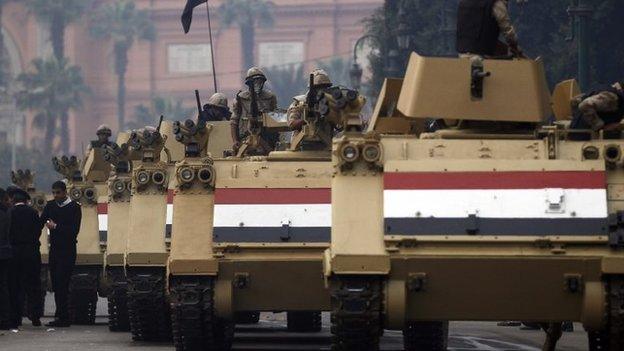
The draft enshrines the military's place as Egypt's most powerful institution
The defence minister must be a member of the armed forces. During the first two presidential terms after the ratification of the constitution, the Supreme Council of the Armed Forces (Scaf) - the governing body of senior officers in the military - must approve the appointment of the defence minister, appearing to place the military above civilian oversight and leaving the president's power unclear.
The military budget will remain beyond scrutiny, with the National Defence Council maintaining jurisdiction and only the overall total published.
Civilians may still be tried by military courts, but only for "direct attacks" on military premises, personnel, equipment, documents and funds.

Religion
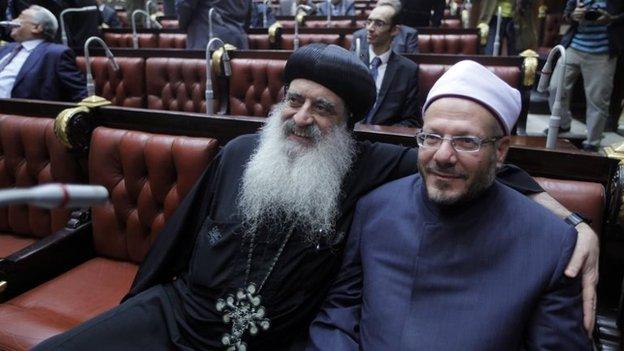
Bishop Bola, the representative of the Coptic Orthodox Church on the panel, praised the draft
Islam remains "the religion of the state" and the "principles of Sharia" remain "the main source of legislation". But a provision in the 2012 constitution that gave a detailed definition of the "principles" is removed.
Al-Azhar, the oldest and most prestigious centre of learning in the Sunni Muslim world, is the "primary reference" in religious sciences and Islamic matters. But the role of its clerics in deciding if legislation conforms to the principles of Sharia is restored to the Supreme Constitutional Court.
The draft says freedom of belief is "absolute", whereas the 2012 charter said it was "protected". Freedom to practice religion and the establishment of places of worship are restricted to believers in "divine religions" - Islam, Christianity and Judaism - and subject to state laws, which have traditionally offered little protection. Christians and Jews can follow their religious codes in personal status affairs.

Politics
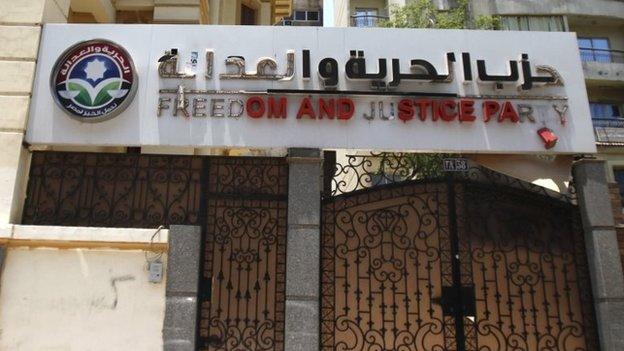
The Freedom and Justice Party was set up in 2011 as a "non-theocratic" group
Parties may not be "formed on the basis of religion, gender, race or geography", dealing a blow to Islamist movements like the Muslim Brotherhood and its Freedom and Justice Party. The 2012 constitution said only that they could not "discriminate" on the basis of religion.
Parties cannot participate in activities against the principles of democracy, be secretive or have military or paramilitary wings.

Rights
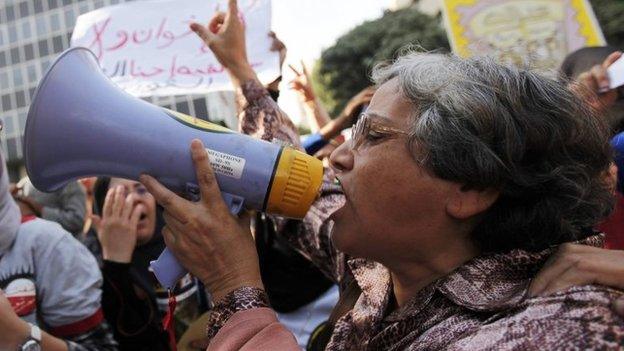
Activists had demanded the introduction of quotas for women in parliament
The draft enshrines personal and political rights in stronger language than past constitutions.
Citizens have the right to freedom of speech and freedom of assembly, but these can only be practised "according to the law", leaving room for the state to curb such rights through legislation.
The state "guarantees the achievement of equality between women and men in all civil, political, economic, social and cultural rights" and provides protection to women from "any form of violence". Slavery, the sex trade and "abuse of human beings" are also prohibited.
The state must abide by all human rights treaties signed by Egypt.
Anyone arrested must be referred to interrogators within 24 hours. A lawyer must be present at the interrogation and the detainee has the right to "remain silent". They will also be able appeal against their detention.
Artists, writers and filmmakers are guaranteed freedom to create, but the media can be censored at times of war and public mobilisation.